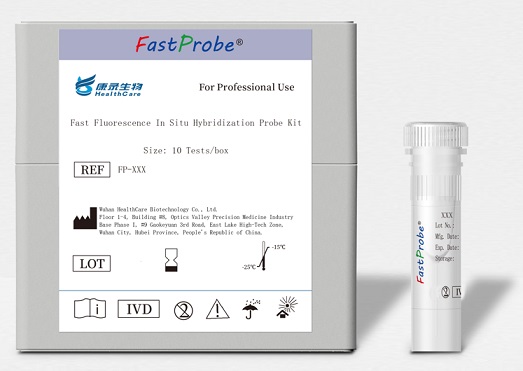IVD - FP180 KMT2A/MLLT3 Gene Fusion Probe Detection Kit

KMT2A/MLLT3 Gene Fusion Probe Detection Kit
[Overview]
The KMT2A gene can be fused in-frame
with more than 120 different partners, creating fusion proteins that are
typically associated with poor prognosis leukemias. One of the most common
fusion partners is the MLLT3 gene (also known as AF9), which is found in 30%
and 13% of KMT2A rearranged AML and ALL respectively; this fusion is associated
with an intermediate risk.
KMT2A gene encodes a transcriptional
coactivator that plays an essential role in regulating gene expression during
early development and hematopoiesis. The encoded protein contains multiple
conserved functional domains. One of these domains, the SET domain, is
responsible for its histone H3 lysine 4 (H3K4) methyltransferase activity which
mediates chromatin modifications associated with epigenetic transcriptional
activation. This protein is processed by the enzyme Taspase 1 into two
fragments, MLL-C and MLL-N. These fragments reassociate and further assemble
into different multiprotein complexes that regulate the transcription of specific
target genes, including many of the HOX genes. Multiple chromosomal
translocations involving this gene are the cause of certain acute lymphoid
leukemias and acute myeloid leukemias. Alternate splicing results in multiple
transcript variants.[provided by RefSeq, Oct 2010].
[Download] KMT2A/MLLT3 Gene Fusion Probe Instructions
[Download MSDS] MSDS

